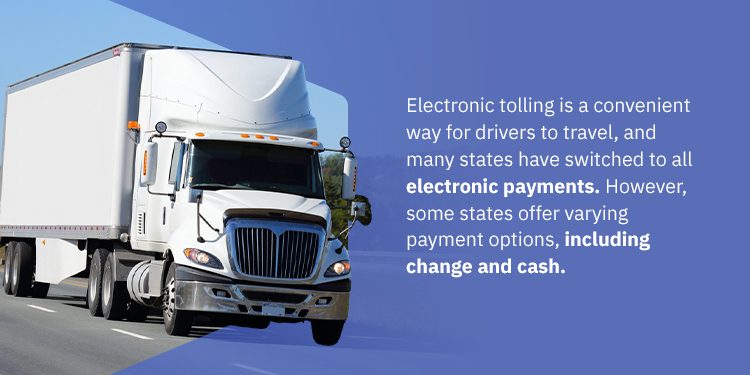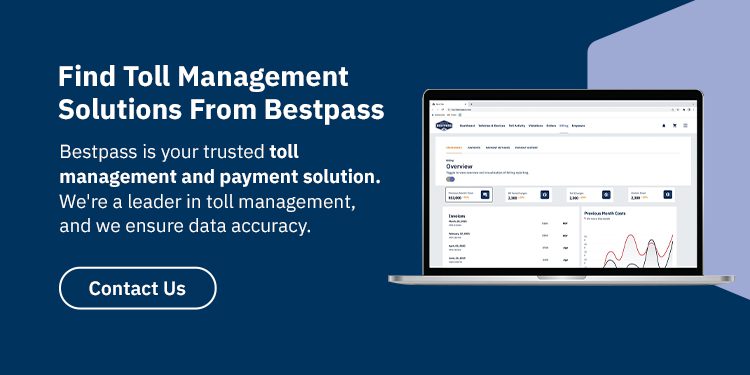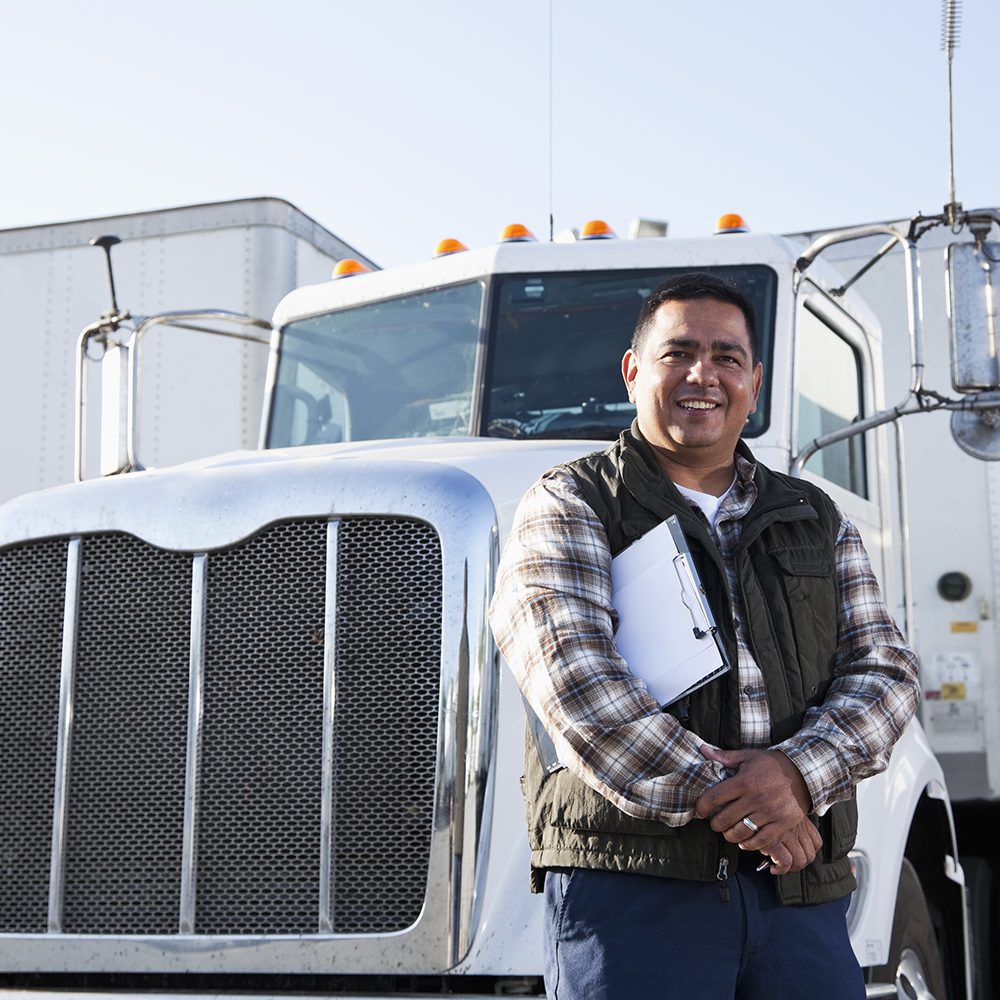
What Is Toll-by-Plate?
As electronic toll collection has grown in popularity, toll-by-plate charges have increased for many businesses and drivers. Delayed billing and additional administrative tasks impact many companies’ ability to keep accurate spending records while maintaining the necessary paperwork to ensure they receive the correct charges for the corresponding routes.
Understanding toll-by-plate is essential for business operations if your fleet regularly relies on toll roads, tunnels, bridges and similar facilities. In this guide, you can find comprehensive information about toll-by-plate services and discover resources for managing plate transactions and exposure.
What Is Toll-by-Plate Tolling Service?
Toll-by-plate is a charge you receive if the toll booth misreads your vehicle’s transponder or if the transponder is not in your vehicle when you go through the toll booth. If you frequently receive toll-by-plate charges, you may not have mounted your transponder correctly or need to purchase a new one.
Toll-by-plate services let drivers continue driving rather than stopping at the toll booth to pay their fees. This system offers driving convenience but can result in a lot of paperwork for businesses that receive them frequently. Receiving a toll invoice can take days or weeks, making it challenging to keep track of driving dates, funding and routes to ensure the charge is correct.
How Does Toll-by-Plate Work?
Cashless tolling is an innovative solution for commercial and residential drivers that takes a picture of the license plate as drivers continue through a booth or toll gantry. With this toll collection option, drivers can continue their routes while skipping long lines, minimizing air pollution, avoiding congested traffic and maintaining their safety on the road.
Drivers without a transponder or other active toll passes can drive through a toll booth or gantry without stopping. The toll-by-plate service is a backup system to ensure all vehicles receive toll charges.
As a driver travels through a gate or gantry, mounted cameras will capture an image of the license plate and the registered car owner will receive a toll bill in the mail in the following days. Some states offer lower toll fees for drivers with a transponder because the additional processes to identify vehicle owners causes a price increase. If your drivers frequently use toll roads, tunnels or bridges, investing in transponders or similar valid passes could reduce business costs while saving time.
Three toll systems in the United States can affect the toll charge you receive:
- Barrier system: Mainline toll booths and ramp tolls have fixed rates every time a driver travels through them.
- Ticket system: Ticket systems charge drivers depending on their entrance and exit on the toll road. This system is similar to a subway station, and the total charge likely differs for every route.
- Distance-based system: Drivers will pay tolls based on how far they travel on a specific road when passing through a distance-based system.

Are All Tolls Cashless?
Electronic tolling is a convenient way for drivers to travel, and many states have switched to all electronic payments. However, some states offer varying payment options, including change and cash. Many tolls offer a variety of ways to pay the fees, including with a credit card, prepaid card, transponder, cash or license plate. Additionally, you can typically pay your toll invoice in cash if you travel on a toll road without a valid toll pass.
What Does Toll-by-Plate Mean for Fleets?
Toll-by-plate systems can significantly impact fleets, regardless of their size. The additional wait time to receive an invoice and keeping route and driver information can quickly create many administrative tasks that take time, effort and resources to resolve. Additionally, each tolling authority has varying regulations for service, which increase the complexity of fleet operations.
Maintaining accurate vehicle lists, such as license plates, is vital for ensuring each of your fleet vehicles and operation. Additional complications can occur when renting or leasing equipment or transferring plates from one owner to another. Larger fleets that routinely replace outdated equipment with newer models can experience a vast increase in administrative tasks, making it challenging to maintain accurate financial information.
Furthermore, many large fleets have numerous trailers for each tractor. Although some tolling authorities will accept trailer plates, others will not. Many toll readers capture the license plate on the back of a vehicle, so many plate transactions can occur when reading the trailer plate rather than the tractor plate. If your business leases or rents trailers, you can experience an additional delay because it can become challenging to determine who is responsible for the toll charge.
How to Handle Unknown Toll-by-Plate Invoices
Many fleets receive mystery toll-by-plate invoices for a plate they never owned or a vehicle the company no longer holds. Disputing the charge and ensuring this mistake doesn’t reoccur is essential for keeping track of your financials and ensuring resources are only dedicated to necessary accounts.
You’re likely to receive an invoice because the DMV has information that highlights you as the registered vehicle owner. If this plate is one that you once owned but has since sold, you will need to provide sale information describing the plate and vehicle. You will also need to provide data about the plate submission date to show that this process occurred before the toll transaction date.
If you received an invoice for a plate you never owned, you would need to request a title abstract or registration. These documents show that your fleet never owned the plate and provide accurate information about the registration history.
Find Toll Management Solutions From Bestpass
Fleets can internally manage toll-by-plate strategies, but this process requires extensive administrative tasks and forces you to obtain information about all equipment and transponders throughout the fleet. Rather than relying on your staff to gain comprehensive knowledge about each toll authority and their best practices, you can depend on Bestpass to deliver high-quality solutions that save you time and money.
Bestpass is your trusted toll management and payment solution. We’re a leader in toll management, and we ensure data accuracy. We partner with 50+ tolling authorities to save fleets time and money by handling their tolling administrative tasks.
As a premier option for commercial fleets through Canada and the United States, we bridge the gap between fleets and tolling authorities. We remove the tolling complexity so you can focus on your organization and operations. Whether you have a six-vehicle fleet or use 6,000 trucks to perform your business operations, we’ve got you covered.
With Bestpass, you can find a one-stop solution to toll management without lifting a finger. Contact us for more information about our services and learn how we can save you time and money. We’d love to hear from you.
Learn More About Bestpass and Speak to a Tolling Specialist Today
If you want to experience effortless and convienient service fleet toll reporting for your company, look no further than Bestpass. We offer the best toll pass for service fleets, providing a platform that makes it easy to understand bills and save time and money. When you sign on with us, you can expect fast implementation, toll discounts and comprehensive coverage.


